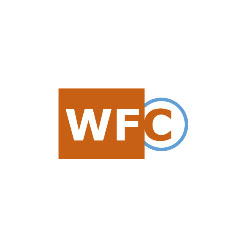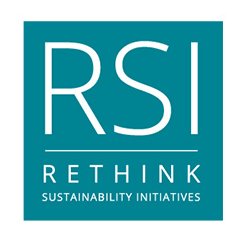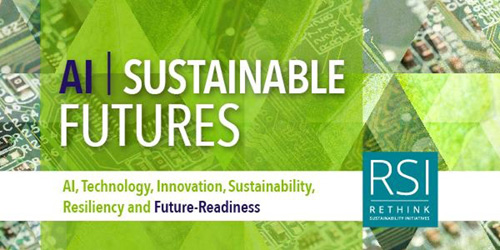It’s “Déjà Vu All Over Again”
These immortal words of the late great Yogi Berra of the New York Yankees seem appropriate today with the production of two Toronto based Smart City Summits scheduled two weeks apart on May 26th and June 9-10th, 2016. It was twenty two years ago in 1994 when we first pulled together a large group to plan Toronto’s Smart City transformation. I teamed up with several other esteemed colleagues to co-found the original Smart Toronto organization and Summit. Roots from Smart Toronto’94 were replanted in 2004 to start the Waterfront Toronto Intelligent Community program and they blossomed to the point where in 2014 Toronto with Waterfront Toronto was named global Intelligent Community of the Year. Now, some exciting and different but related future opportunities will be discussed, debated and prioritized but with different goals during the two Toronto Summits.
This post is written from the perspective of my dual role in the leadership of both Summits: Co-Chair of the Smart Cities Working Group of the Smart Cities Summit: Towards a Connected Toronto Region, (May 26th), produced by the Toronto Region Board of Trade (TRBOT), and Chair of the i-CANADA Alliance, producer of the World Future Cities Summit (June 9-10). Both Summits will be very interesting events and there is a connection between the two events.
The TRBOT Summit will feature approximately 200 participants, mainly from the Toronto Region, who will study, debate and recommend a series of high level goals and priorities for moving the City of Toronto to the “next level” in urban transformation. This next level will include smart, intelligent, sustainable, resilient, creative, cultural and inclusive dimensions within a broad framework of economic, environmental and social objectives. The agenda is described at: https://www.bot.com/Events/EventsCalendar/SmartCitiesSummit.aspx.
The World Future Cities Summit (WFCS) has a national and international focus in three areas:
- Community transformation; goals, new opportunities and best practices
- International sales development with senior officials in attendance from India’s 100 Smart Cities program, the world’s largest market for smart city products and services, and
- Organization of the Rising Communities Caucus of i-CANADA. This Caucus will provide an ongoing focus on the aspirations, opportunities and lessons learned in the digital transformation of Canada’s smaller cities and towns.
WFCS is further described in detail at www.wfcs.ca.

Toronto Region Board of Trade (TRBOT) Smart Cities Summit
This will feature an interesting blend of national and international panelists and speakers, including the following sample:
- Mark Kleinman, Director of Economic and Business Policy for the Mayor of London, UK
- Volker Buscher, Arup, Director of Digital Business
- Harout Chitilian, City of Montreal, Vice Chair of the Montreal Executive Committee
- Chris Dwelley, City of Boston, Citywide Performance Manager
- Stuart Cowen, Chief Scientist, US Smart Cities Council
- Dr. Sara Diamond, President and CEO, OCAD University
- Dr. Patricia McCarney, President and CEO, World Council on City Data
- Stephen Buckley, General Manager, Transportation Services, City of Toronto
- Rob Meikle, CIO, City of Toronto
- Kristina Verner, Director, Intelligent Communities, Waterfront Toronto
These speakers will provide background as input for nine breakout groups organized within three themes. Each of the nine groups will produce a number of recommended priorities for Toronto’s future planning according to the focus of their group. The three themes and the focus of each group is as follows:
- Environment:
- Infrastructure Energy, Water and Transportation
- Resiliency
- Urban Planning and Design
- Social:
- Health and Well Being
- Safety and Security
- Culture and Entertainment
- Economy:
- Employment and Talent
- Research and Innovation
- Investments
At the end of the day, this TRBOT Summit will likely have identified a few priorities for the City of Toronto as it moves forward with its ongoing planning and urban transformation over the next few years. This same planning and related framework will inform future TRBOT initiatives as TRBOT fulfills its regional role working with other communities in the Toronto Region. What is impressive about this initiative is the world’s leading Smart Cities have all included broad community collaboration in their roadmap to winning global awards as leaders. This Summit provides a great example and effective framework for appropriate collaboration.
Learn more here.

World Future Cities Summit (WFCS)
Details of the agenda are at www.wfcs.ca and some examples of speakers include:
- Pratap Padode, Founder and Director, Smart Cities Council, India
- Dr. Ilse Treurnicht, President and CEO, MaRS Discovery District
- Seven Adler, IBM Global Leader, Information Strategy, New York
- Eric Deschenes, Vice President, North American Energy Division, Schneider Electric
- Professor Eric Miller, Director, International Transportation Institute, University of Toronto
- Janet De Silva, President and CEO Toronto Region Board of Trade
- Dan Mathieson, Mayor, Stratford, Ontario
- David Sandel, Founder, Gigabit City Summit, Kansas City
- Fawn Annan, President and Group Publisher, IT World Canada
- Rick Bonnett, Mayor of Halton Hills
- Mark Romoff, President and CEO, Canadian Council of Public Private Partnerships
- Dr. Michael Shepherd, Professor, Faculty of Computer Science at Dalhousie University and previously Dean of Computer Science for 7 years
- Dr. Sara Diamond, President and CEO, OCAD University
- Dr. Patricia McCarney, President and CEO, World Council on City Data
- Marianne Treschow, Royal Swedish Academy for Engineering Sciences
Janet De Silva, President and CEO, Toronto Region Board of Trade will provide an important link between the two Summits, as will I informally. She will present to a panel at WFCS the high level summary of priority recommendations from the TRBOT Summit and there will be an opportunity for dialog and feedback at WFCS.
Included in WFCS is an evening of musical entertainment on June 9th produced by Luminato at “the Hearn” in Toronto’s Portlands. The idea is to convey the importance of entertainment in our future cities and the Hearn as a living example of potential revitalization of a very large heritage structure.
Hope to see you at one or both of these fine events!
 I’m excited to be reflecting on what has developed and evolved so far in the Smart City realm, and what challenges and opportunities lie ahead, as I join the distinguished group of thinkers and leaders in sustainability, business and science speaking at the RSI | Rethink Sustainability Initiatives 2018 Leadership Summit coming to Toronto on March 28, 2018. AI Sustainable Futures Summit and Innovation Zone is a one-day action-focused exchange where forward-thinking leaders, entrepreneurs and experts from business, finance, science, cities and civil society come together to discover opportunities for advancing our future sustainability — with special focus on artificial intelligence (AI), digital technologies and other transformative innovations.
I’m excited to be reflecting on what has developed and evolved so far in the Smart City realm, and what challenges and opportunities lie ahead, as I join the distinguished group of thinkers and leaders in sustainability, business and science speaking at the RSI | Rethink Sustainability Initiatives 2018 Leadership Summit coming to Toronto on March 28, 2018. AI Sustainable Futures Summit and Innovation Zone is a one-day action-focused exchange where forward-thinking leaders, entrepreneurs and experts from business, finance, science, cities and civil society come together to discover opportunities for advancing our future sustainability — with special focus on artificial intelligence (AI), digital technologies and other transformative innovations.






